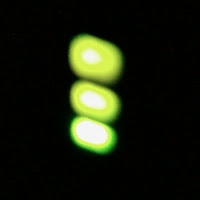esmaspäev, 7. märts 2022
On self-awareness, introspection, and the disposition of self
This is a reply-as-a-comment to a YouTube video, in which the narrator exhibited an unusually deep sense of self-awareness and introspection.
I saw your video in the recommendations sidebar.
The Estonian word for this kind of sadness is "kaamos", while the Russian word for this is "тоска" (tos'ká).
It is not depression, but a flavour of sadness, which comes as a wave, and then subsides and recedes.
You are not the centre of the world, but the centre of yourself. It is not egocentrism, but rather more one of being in the centre of your own maze, in your own self. (Ego is not egocentrism, btw.)
Other people possess different levels of self-awareness; if that video is any indication, then yours goes a bit deeper.
The Maze is a reference to the first season of "Westworld", which concentrates itself with the idea of being a self-aware being, and what are the personal qualities and levels of such self-awareness that would qualify someone to have agency.
"Westworld" the series then goes on to explore if and whether androids should be recognised as equals to humans in having a similarly functional, if different, combination of self-awareness + agency — something that makes them whole unto themselves, and thus worthy of life.
Addendum:
I guess what you described in the video could be described as detachment, as the sum of self-awareness, introspection, and a dash of being mindful of the difference between what I glimpsed as the real you inside, and what you present yourself as to your friends, or the people currently in your orbit.
Said difference might have been caused by some of the recent losses that you say you've experienced, but which losses you appear to not have chosen to express and reveal to your friends, for said losses are too personal to reveal. It is okay to not let them know.
Whereas the relative anonymity and greater distance of the Internet permits one to signal a bit more of your inner self outside the circle of those in your orbit.
Dr. Ford in "Westworld" proceeds to posit, that suffering, through loss, is that which in his mind makes us us, and androids self-aware.
The catch here is, that not all people have experienced the profundity that often comes with losing a close person, be it a human or animal, and not all people have the ability even.
Feeling detached through loss confers not a state of being special, but different, apart from others.
Not wishing to share your inner feelings with those in your orbit is therefore normal, for they are not to know all that, because their reactions are predictable, maybe even boilerplate.
There's a passage in one of the songs by the Swedish band Eskobar: "I'm not lonely, but, yes, I am alone.
This inner journey in detachment is not one of loneliness, but one of having a whole self.
It is your inner journey, one which your friends and acquaintances are not part of, not even relatives and spouses. — I'd let perhaps only a very few close people I've personally met or known close to my spirit like this.
Tellimine:
Postituse kommentaarid (Atom)

Kommentaare ei ole:
Postita kommentaar